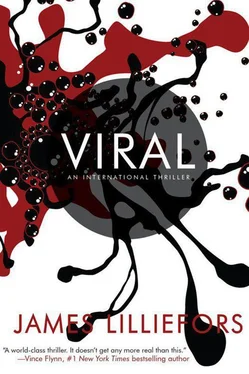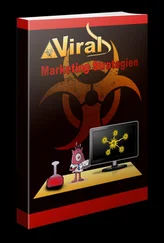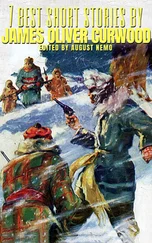“When did the United States government become a part of it, then?” Charlie slowly lifted his gun and aimed it at Franklin.
“When we didn’t have a choice.”
Charlie watched his onetime mentor, considering Franklin’s words carefully. “What are you saying, that the government was forced to go along with this?”
“I’d rather not put it so crudely,” he said. “It was in motion before the government found out about it. And then we were given a choice. An opportunity.”
“It came to Covenant Division.”
He nodded very slightly. “It became an opportunity,” he said. “Become a part of it or let it go somewhere else. If it got away from us, it would be a threat to everyone. To world stability. Okay? We couldn’t be excluded and we couldn’t ignore it. On the other hand, we saw an incredible opportunity—the chance to create a new model that would eventually lift up the Third World. I’m sure you can appreciate that.”
So Gardner, in effect, blackmailed the United States government with this project, Charlie thought. Hostile takeover. Not of a corporation, but a government. A nation.
They fight different wars . What Isaak Priest said.
“In other words, Gardner came to you with this proposition. You brought him in because you felt you didn’t have a choice. But you didn’t want him in control. That’s not how the government does things. You wanted me to get Priest as a way to strip power from Gardner. Priest had already set this up, through Gardner. It was operational. It’s really a power struggle over control of Covenant Division now, isn’t it? You hired me to bring down Priest—Landon Pine—to diminish his partner, Perry Gardner. That’s what this really is.”
“Charlie. I’m not going to talk about that.”
“Isn’t that what Covenant Division does? Identify potential threats against the United States and then eliminate them? Demographics is the coming war. The invisible war. That’s what my father thought. That’s why he was killed.”
“Charlie, you’re not wrong. But I can’t talk about it, okay? Don’t you understand? Perry Gardner’s firm is a threat. Because technology is a threat. The technology his company has developed could make the United States technologically obsolete if we let it. So we chose to bring him in, rather than bring him down. That’s our mission. It’s a win-win.” Franklin looked at the gun. “What are you going to do, shoot me?”
“Probably not. I’m not sure yet.” He stared into Franklin’s steady hazel eyes. “Where’s Gardner right now?”
“How would I know?”
“You have to know. You must’ve met with him yesterday.”
“Don’t do this, Charlie.”
“Why not?”
“Listen to me.” For a moment, he closed his eyes and grimaced. “This goes way beyond you and me, Charlie. You can’t put it out there as a story. Stopping the event is one thing. Putting it out as a story is another.”
“How can this not come out as a story?”
Franklin sighed, and Charlie saw a new calm in his face. “Which story are we talking about, now?” Franklin said.
“What they were planning to do. What they have in place. What you have in place. In Africa.”
“That’s one story,” he said. “Okay? There are others, too. Other, better stories that, frankly, contradict it.”
“I know. Like Trent. Olduvai. Deceptions.”
So were those, too, created by the government?
“Look, Charlie.” Mallory set the gun on his leg, sensing that Franklin wanted to tell him the truth. “What would happen if the story you are referring to came out and was believed? In Europe. In Africa. In the Middle East. What would that do to our country, do you think?”
Charlie watched him, beginning to understand.
“Sometimes, deception is necessary,” Franklin said. “You wouldn’t be in the business you’re in if you didn’t grasp that. If people were aware of everything that went on in the world—of the tragedies and injustices occurring every day, right this minute—what would happen? Could they function? How could they justify their own lives?
“This goes beyond you and me, Charlie. Look, I’m going to tell you something now that I’m not supposed to. It doesn’t matter because you can’t do anything with it. It’s just a fact. Maybe it’ll help you understand and make the right decision.”
Make the right decision .
“Please,” he said. “Tell me.”
“This isn’t about the government, Charlie. It’s about an idea.” He took a deep breath. “Sometimes, deception—as you’re using the word—is warranted because of what it brings about. Every time a politician or a business leader gives a speech, there’s a degree of deception going on, at some level. When it inspires people to live better lives, then that isn’t a bad thing. When it brings out our better natures, deception can be a good thing.”
Franklin was still playing his role as mentor, to see if Charles Mallory would assume his role as student. Charlie nodded.
“What about when it doesn’t?”
“Then the public sees through the deception and eventually it’s replaced with something else.”
“Give me an example.”
“A president saying we can win a war in Southeast Asia that can’t be won. Another president who breaks the law and insists he’s not a crook. Okay? I could go on.”
Mallory blinked.
“The public eventually saw through those because they were imperfect deceptions. What I’m talking about is something different.”
“Imperfect, in what sense?”
“Imperfect because they were human deceptions, self-deceptions. Fallibilities. When we saw through them, they did bring out our better natures. They helped us redefine who we are. But there is also something else, which is what I’m really talking about.”
“Go ahead.”
“It’s something that’s built into the fabric of this country, and makes it different from any other country. You can’t see it, but it’s there. It’s not a government, it’s not the people. It’s an idea.” He set his glasses down on the sofa, watching Charlie. “And it’s too important, too valuable to ever be endangered again.
“That’s why we keep a military that’s almost double the size of every other military in the world combined,” he continued. “It’s there to defend and protect an idea.”
“That’s the Covenant.”
“It’s not something that people are meant to understand or think about. Any more than they’re meant to think about how their hamburgers are made.” He seemed about to grin, but didn’t. “With more than three hundred million people, it just wouldn’t be practical. How it works doesn’t matter to the average person, and it shouldn’t. That’s okay. What matters is that it does work, and that it takes care of its people. If it’s a deception, it’s a necessary deception.”
Where had he heard this idea before? He thought of something else, then, something John Ramesh had said to him as he drove to the mouth of the plague pit. If eight million poor Africans go to sleep one night and don’t wake up the next morning, do you think anybody’s really going to care?
“Covenant Division goes back years, doesn’t it?”
“In name, it goes back to World War II. Originally, it was called the Covenant Project. It was designed, in a nutshell, to make sure we are never vulnerable again, and to look out for allies that are. Our nuclear program was part of Covenant originally.”
“Was it Covenant Division that decided to invade Iraq? To take out Saddam?”
“I can’t comment, Charlie.”
“It failed to stop the attacks of 9/11. It didn’t do so well there.”
Читать дальше












